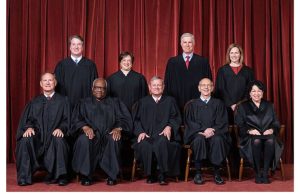Less than a month before the estate tax is set to disappear for a year, The House of Representatives approved legislation Thursday that would create new rates for 2010 and beyond.
Sponsored by Earl Pomeroy (D-N.D.) and introduced two weeks ago, H.R. 4154 would make an estate tax of 45 percent permanent, with exemptions on individual estates up to $3.5 million, $7 million for couples. The bill was approved by a vote of 225-200, with Republicans voting against in addition to 26 Democrats. The measure still must pass the Senate, where debate has been focused on healthcare reform, before the end of the year.
Without action by Congress before year’s end, the estate tax would disappear in 2010 before returning in 2011 at 55 percent, with a $1-million exemption.
It’s unclear how the Senate will act or if anything can pass in the Senate, where 60 votes are needed for the House bill, according to Adam Hughes, director of federal fiscal policy at OMB Watch, a federal fiscal watchdog group. To move to a debate or vote on the estate tax, the Senate would need a vote to end debate on healthcare, and another to shift gears to the estate tax, he said. “Things would have to move pretty quickly,” for the measure to pass the Senate, Hughes said. “Everyone is in agreement that Congress should pass something this year, I just don’t know if that agreement that something should be passed is actually enough to get something passed,” he said.
An amendment to a budget resolution earlier this year that called for a $5-million exemption and 35 percent rate introduced by Sen. John Kyl (R-Ariz.) and Blanche Lincoln (D-Ark.) was stripped during conference debate, Hughes said.
Robert Sharpe Jr., president of Memphis-based philanthropic consulting firm The Sharpe Group, expects lawmakers to take an easier route in the short term. Rather than allow the estate tax to expire in 2010, Congress is likely to approve extending current rates for 2010 and put off dealing with the estate tax for another year. It’s been almost 10 years since any significant tax legislation — “the longest we’ve been in a long time” – and Sharpe believes that will be tackled in 2011. “They won’t do anything next year either because it’s a mid-term election year,” he said.
The House bill extends the status quo permanently while the Senate wants to extend the status quo one year, Sharpe said. “It’s easier to vote for the extension,” he said, and President Barack Obama supports either one. A one-year extension, he added, probably gives the president more bargaining power to talk about a tax overhaul in 2011.












